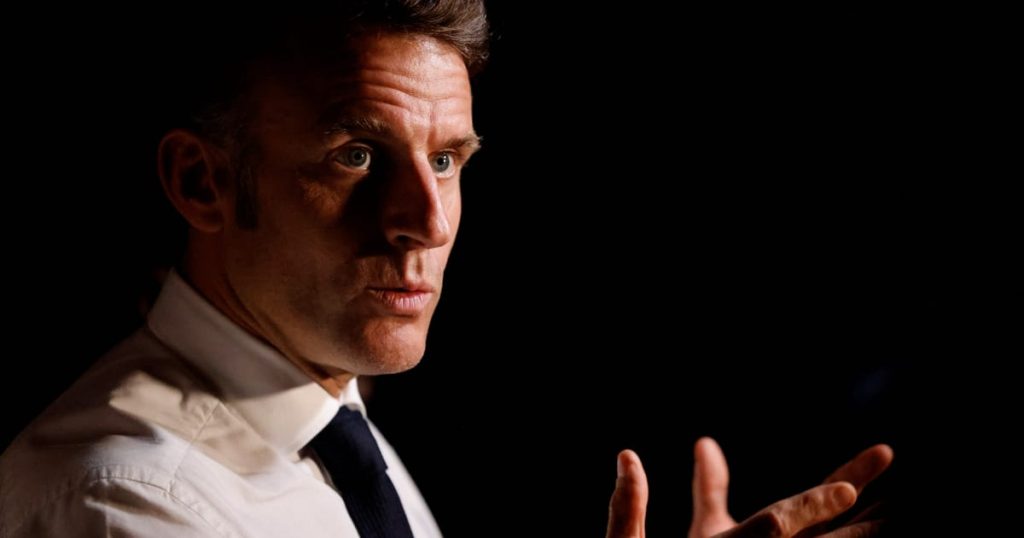Elon Musk’s increasing engagement in European politics has sparked controversy, drawing both criticism and cautious observation from prominent figures like French President Emmanuel Macron and Norwegian Prime Minister Jonas Gahr Støre. Musk’s vocal support of the far-right Alternative for Germany (AfD) before their impending election triggered accusations of election interference from the German government and various political leaders. This intervention, coupled with his unexpected foray into British politics – urging Nigel Farage, leader of the right-wing Reform UK party, to step aside – has fueled concerns about the potential impact of his actions, given his significant social media influence. While Musk’s political involvement has yet to extend to France, his support for right-wing movements elsewhere raises questions about his future stance, particularly concerning Marine Le Pen’s National Rally, considering the divergence between his economically liberal views and the party’s platform.
The nature of Musk’s political interventions warrants closer examination. His endorsement of the AfD, a party known for its nationalist and anti-immigration rhetoric, is a particularly sensitive issue in Germany, given the country’s historical context. Critics argue that such endorsements can amplify extremist ideologies and normalize hate speech, potentially impacting electoral outcomes and contributing to societal polarization. Similarly, his unsolicited advice to Nigel Farage to resign from the leadership of Reform UK, a party also associated with right-wing populism, highlights Musk’s willingness to insert himself into the political affairs of other nations, raising questions about his motivations and the potential consequences of his actions.
The international community’s response to Musk’s political maneuvering has been mixed. While some, like Norwegian Prime Minister Støre, express concern about the implications of a powerful figure with vast social media reach becoming “directly involved” in the politics of other countries, others, such as French President Macron, adopt a more pragmatic approach. Despite acknowledging the potential for controversy, Macron has maintained cordial relations with Musk, illustrated by Musk’s presence at the Notre Dame Cathedral reopening alongside then US President-elect Donald Trump, and his recent donation of Starlink terminals to Mayotte following a cyclone. This pragmatic approach reflects a desire to engage with Musk, recognizing his influence and potential for collaboration, especially in areas like artificial intelligence, rather than directly confronting his political actions.
The complex relationship between political leaders and influential figures like Musk presents a delicate balancing act. Macron’s decision to invite both Musk and Trump to an upcoming AI summit demonstrates a strategic effort to leverage their expertise and influence while navigating potential political disagreements. This approach acknowledges the reality that engagement with such figures, even those with controversial viewpoints, can be necessary to advance specific agendas, particularly in fields like technology and innovation. However, this strategy also carries risks, potentially legitimizing controversial figures and their political stances.
Macron’s careful maneuvering in the face of Musk’s political forays contrasts with the more direct concerns voiced by other European leaders. While Støre’s apprehension about Musk’s interventions underscores the anxieties surrounding the potential for misuse of social media influence in political contexts, Macron’s approach reflects a more pragmatic perspective. His willingness to maintain a relationship with Musk, despite potential ideological differences, suggests a strategic calculation to prioritize collaboration in areas of mutual interest, like technological advancement. This pragmatic approach underscores the complexities of navigating international relations in an era where technological influence plays an increasingly significant role.
The unfolding situation highlights the evolving challenges posed by influential figures with global reach engaging in international politics. The intersection of social media, technology, and political discourse creates a dynamic landscape where traditional diplomatic norms are being redefined. As individuals like Musk exert greater influence on the political stage, it remains to be seen how governments and international institutions will adapt to navigate these complex dynamics and mitigate potential risks while maximizing opportunities for cooperation in critical areas like technological innovation and global challenges.














